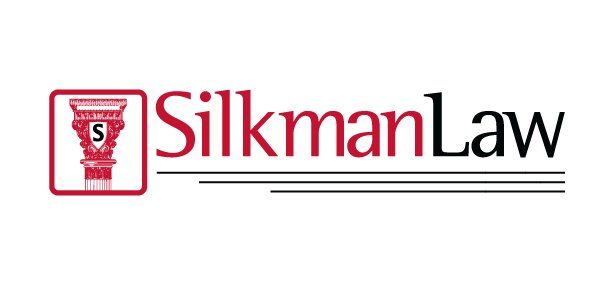Consent Order

Cory Silkman
Professional License Defense Attorney
Mr. Silkman, an experienced and highly respected professional license defense lawyer in Maryland, explains the implications of consent orders proposed by professional licensing boards in Maryland.
Call 410-415-9158

Cory Silkman is a Fellow of The American Association of Nurse Attorneys and handles all licensing board cases.

5.0 Performance Rating*
What is a Consent Order?
A Consent Order is a proposed settlement to your board case. It is an offer made to you to resolve your case without the need for an evidentiary hearing. A Consent Order is proposed to you after your case resolution conference or settlement conference at the board.
If you receive a Consent Order for consideration, it means that the board has reviewed your case and has identified one or more breaches of the Practice Act and/or regulations governing your profession that it believes it can prove if the case proceeds to an evidentiary hearing. In other words, it means that the board has taken the position that your case should result in the discipline and/or monetary penalty specified in the Consent Order.
The Consent Order contains factual allegations relating to you and your case that the board believes are true. It also specifies the specific statutes and regulations that the board believes you violated. The Consent Order does not necessarily reflect your own position on the case. It reflects the board's position on your case.
The board cannot impose the Consent Order on you. You have the choice to either accept the Consent Order, or reject it. You cannot modify the Consent Order or re-negotiate it. It the board's final settlement offer to you.
Accepting a Consent Order
A Consent Order can either be accepted or rejected.
If you accept a Consent Order, it means that you agree that its contents are true. In other words, you agree that the factual findings and conclusions of law stated in the Consent Order are true and appropriate for your case, and that you accept the discipline and/or monetary penalty it imposes on you and your license.
You cannot accept a Consent Order, and then later reject it. You cannot accept it, and then later claim that its contents are false, or that it is unjust. If you disagree with, or do not want to accept, the Consent Order, you can reject it and take your case to an evidentiary hearing.
To accept a Consent Order, you must take it to a notary public, and sign it in the presence of the notary. You then submit the notarized and signed document to the board.
A Consent Order becomes effective once it is signed by both you and the board's designee. The Consent Order is then posted to the board's website and will show up on your license page on the board's website. It also gets reported to the National Practitioner Data Bank and any other national entity to which the board reports it. To learn more about the implications of signing a Consent Order, you should click on this link
to read about disciplinary action and its implications on your license, career, and employment.
A Consent Order cannot be expunged and stays with your license forever.
Rejecting a Consent Order
You can reject a Consent Order. This means that you notify the board of your rejection of the Consent Order, and your case proceeds to an evidentiary hearing.
Once you reject the Consent Order, you cannot later accept it or re-negotiate a settlement to your case. In other words, the board's settlement offer to you contained in the Consent Order is "taken off the table" and will never be available to you again.
If you reject the Consent Order and take your case to an evidentiary hearing, all applicable disciplinary action(s) and monetary penalties that apply to you case are put back on the table. This means that the evidentiary hearing can result in a reprimand, probation, suspension, or revocation of your license, and/or a monetary penalty. You should refer to the charging document in your case to read about the possible disciplinary action and/or monetary penalty that the board can unilaterally impose on you if you take your case to an evidentiary hearing.
Following the evidentiary hearing, the board will decide your case and determine unilaterally what discipline and/or monetary penalty, if any, it will impose on you.
The Consent Order is your only opportunity for you to agree to a settlement and resolution of your case without your case proceeding to an evidentiary hearing, or the board unilaterally imposing disciplinary action and/or a monetary penalty.
Considering the Consent Order
You should discuss your Consent Order and case with an attorney experienced in professional license defense and licensing board cases.
When deciding whether to accept or reject a Consent Order, it is important to consider the possible and likely outcomes if you take your case to an evidentiary hearing.
It is also important to understand the implications of discipline and/or a monetary penalty generally, whether such discipline and/or penalty results from a Consent Order or the board's unilateral decision following an evidentiary hearing.
All Licensing Board Cases Accepted
Maryland Board of Physicians
Maryland Board of Nursing
Maryland Board of Social Work Examiners
Maryland Board of Physical Therapy Examiners
Maryland Board of Occupational Therapy Practice
Maryland Board of Professional Counselors and Therapists
Maryland Board of Dental Examiners
Maryland Board of Examiners of Psychologists
Maryland Board of Pharmacy
Maryland Board of Massage Therapy Examiners
Maryland Board of Chiropractic Examiners
Maryland Board of Dietetic Practice
Maryland Board of Examiners for Audiologists, Hearing Aid Dispensers, and Speech-Language Pathologists
Maryland Board of Morticians and Funeral Directors
Maryland Board of Examiners of Nursing Home Administrators
Maryland Board of Examiners in Optometry
Maryland Board of Podiatric Medical Examiners
Maryland Board of Environmental Health Specialists
Maryland Board for Certification of Residential Child Care Program Professionals
Maryland State Acupuncture Board


